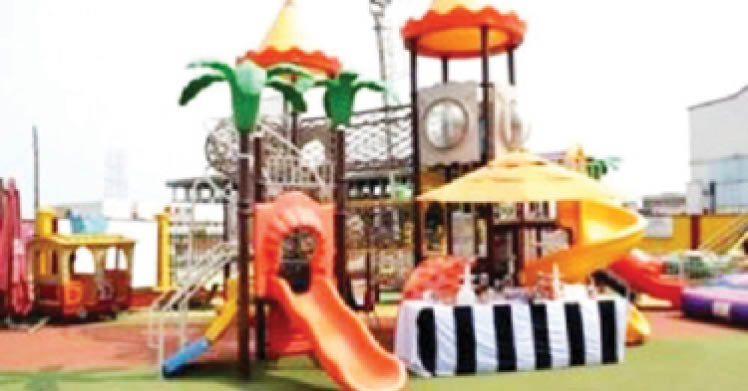Easter: FCT residents shun leisure spots over insecurity, cash crunch
Some leisure spot owners in Abuja on Monday decried low patronage during the Easter festivities. In an interview with the News Agency of Nigeria (NAN), they blamed the low patronage on economic hardship triggered by inflation, insecurity and cash crunch. According to Istifanus Nanu, the Manager, Taminus Garden, Asokoro, sales have significantly decreased compared to […]

Recreational centre in Ibadan
Some leisure spot owners in Abuja on Monday decried low patronage during the Easter festivities.
In an interview with the News Agency of Nigeria (NAN), they blamed the low patronage on economic hardship triggered by inflation, insecurity and cash crunch.
According to Istifanus Nanu, the Manager, Taminus Garden, Asokoro, sales have significantly decreased compared to 2022.
“During the Easter period in 2022, we had more sales.
- Banditry, fake tyres, kidnapping now highest killers — FRSC
- NIGERIA DAILY: How Resurfacing Of Naira Notes Might Be Fuelling Resurgence Of Insecurity
“This may be because there was cash available but this time around we are recording low patronage.
“I think the people are economising the cash they have,” Nanu said.
Julius Eke, the Chief Executive Officer of Islands Bar and Lounge at Guzape, said that he observed a decrease in the number of customers.
“Customers are no longer coming as before and this did not just start with Easter, we started observing the decline since the currency redesign was introduced,” Eke said.
On his part, Mr Fidelis Ehizoje, owner of a beer parlour in Karu, said that weekends when he usually made around 80 per cent in sales had seen a dramatic decrease to 60 per cent.
“The increase in the price of drinks and other things we sell here is not just the problem; the major problem we are facing is the price of diesel, fuel, and electricity bills,” Ehizoje said.
“The increase in price of beers, wine, catfish and other things can be adjusted to the customer but the prices of diesel and fuel are taken from the company’s account which can ruin the business.
“More so, we are experiencing challenges with electronic transactions whereby some people come and buy things but cannot make electronic payments successfully.
“I want to urge the authorities to ensure that adequate infrastructure is in place to enable seamless electronic money transfer.
“This is important because it will help our business. Many customers lament the lack of cash and this is affecting our sales drastically,’’ Ehizoje said.
Some customers blamed their irregular visits to leisure spots on inflation.
Mr Emeka Anosike, who said that he used to be a regular customer to leisure spots, expressed concern over the increasing cost of things.
He said: “I like to visit the gardens to watch football, particularly on weekends but the high cost of things is scaring me away nowadays.
“Previously, my brand of beer was N500 but now it is N700.
“I used to buy an average-sized roasted fish for N2,000, but the price has jacked up to N2,500 and in some cases N2,800.
“If the trend continues, the chances of visiting leisure spots would reduce,’’ Anosike said.
Another customer, Mr Sampson Salewa, said that in spite of the challenges, insecurity was a major factor that discouraged him from going to leisure spots.
“But with the improved security situation, I am comfortable going to leisure spots to unwind particularly during festive periods.
“You may have heard people saying a lot about the importance of tourism in many regards.
“When one elaborates on its economic effects, I am more interested in its impact on my life,’’ Salewa said.
According to the National Bureau of Statistics (NBS), the country’s headline inflation rate rose to 21.91 per cent in February 2023 compared to 21.82 in January, indicating an increase of 0.09 per cent.
The price of diesel also increased from about N600 per litre in 2022 to over N800 in some parts of Nigeria, putting unprecedented stress on the economy and threatening businesses in the country.
